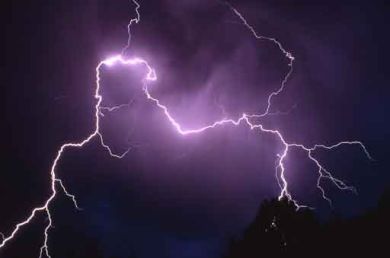

Four successive lightning strikes that affected a data centre in Belgium were the cause of the four-day cloud outage last week, Google has admitted.
From Thursday August 13 to Monday August 17, errors on Google’s Compute Engine persistent disks in its Belgium data centre caused a blackout for a small portion of customers in Europe.
Google has now said that lightning strikes, which hit a local power grid, caused a loss of power to some of its storage systems, resulting in the persistent disk errors.
“At 09:19 PDT on Thursday 13 August 2015, four successive lightning strikes on the electrical systems of a European datacenter caused a brief loss of power to storage systems which host disk capacity for GCE instances in the europe-west1-b zone,” wrote Google this week.
Despite the random nature of the cause, Google is fessing up and taking full responsibility for the outage.
“This outage is wholly Google’s responsibility,” said the search giant.
“However, we would like to take this opportunity to highlight an important reminder for our customers: GCE instances and Persistent Disks within a zone exist in a single Google data centre and are therefore unavoidably vulnerable to data centre-scale disasters.”
Google engineers toiled to fix the incident, with the number of affected disks progressively declining as engineers fixed issues. By Monday, a very small number of disks were left offline, totalling less than 0.000001 percent of the space of allocated persistent disks in europe-west1-b. Unfortunately, these disks are unrecoverable, said Google.
To prevent this happening in the future, Google said that it is working on upgrading its storage hardware so it will be less susceptible to power failures.
“Since the incident began, Google engineers have conducted a wide-ranging review across all layers of the data centre technology stack, from electrical distribution systems through computing hardware to the software controlling the GCE persistent disk layer,” said Google.
American space agency prepares for testing of Boeing's Starliner, to ensure it has two space…
As UK and Europe develop closer military ties, European Commission says it will invest €1.3…
Zuckerberg seeks to revive Facebook's original spirit, as Meta launches Facebook Friends tab, so users…
Notable development for Meta, after appeal against 2021 WhatsApp privacy fine is backed by advisor…
First sign of shake-up under new CEO Lip-Bu Tan? Three Intel board members confirm they…
Trump's nominee for SEC Chairman, Paul Atkins, has pledged a “rational, coherent, and principled approach”…